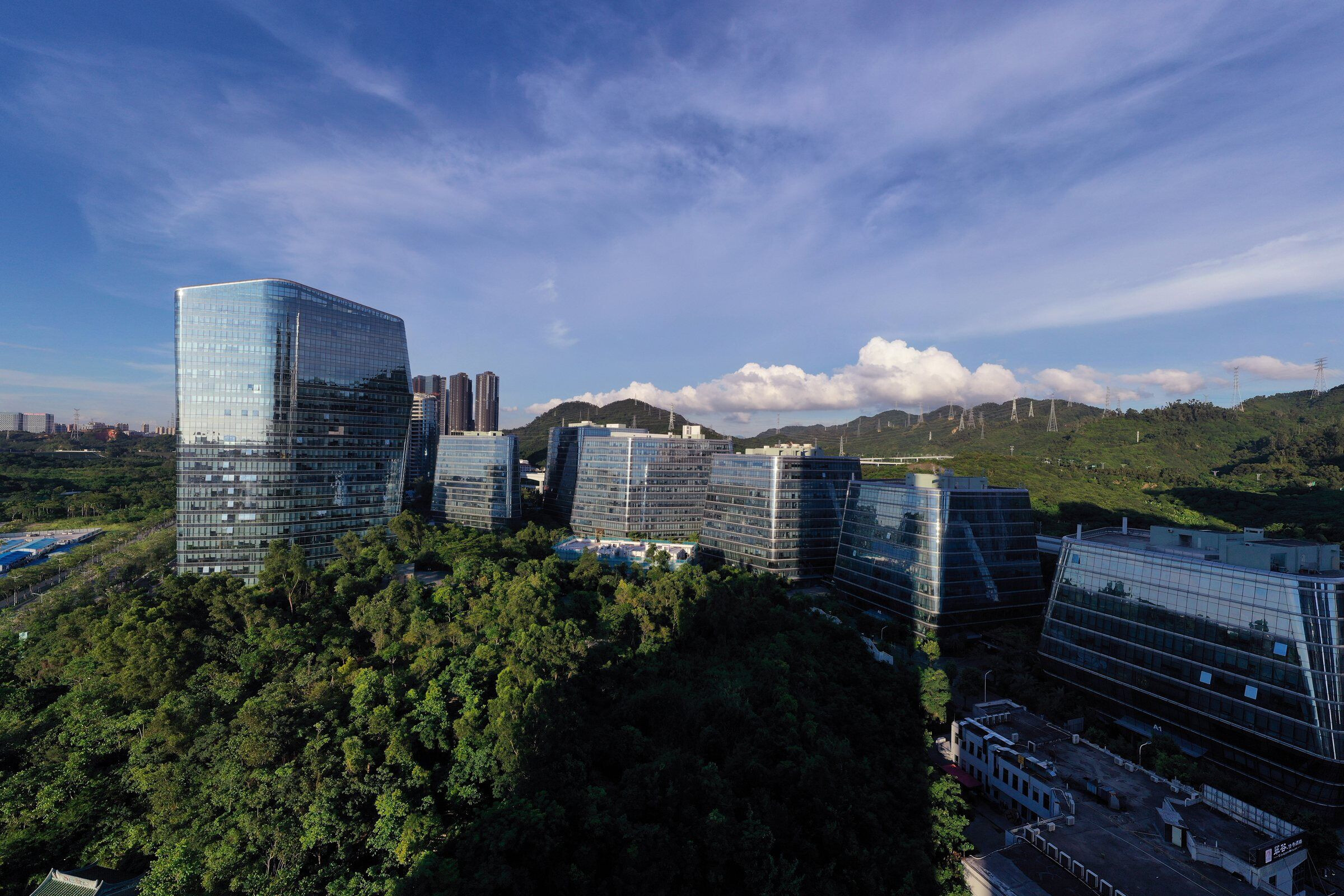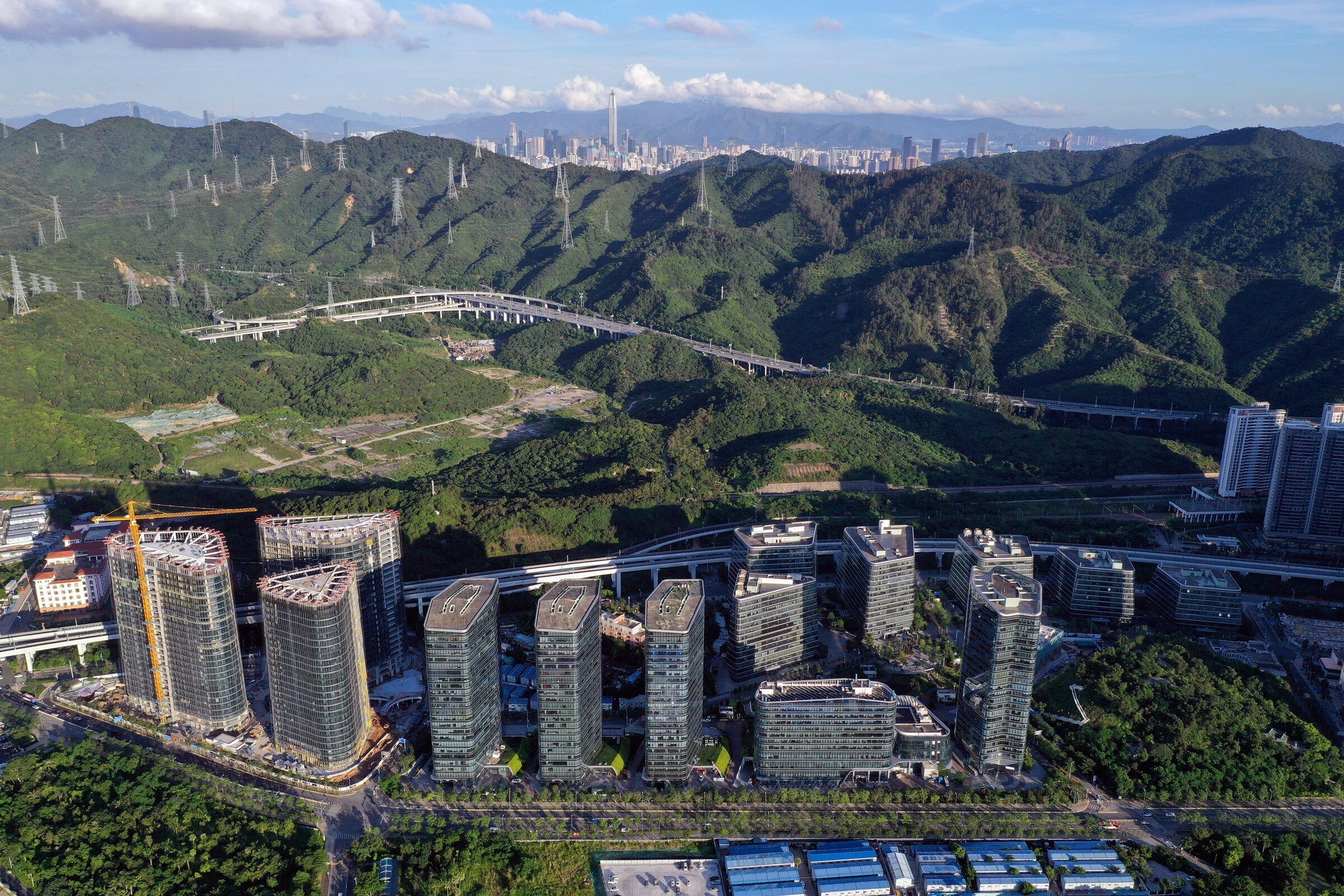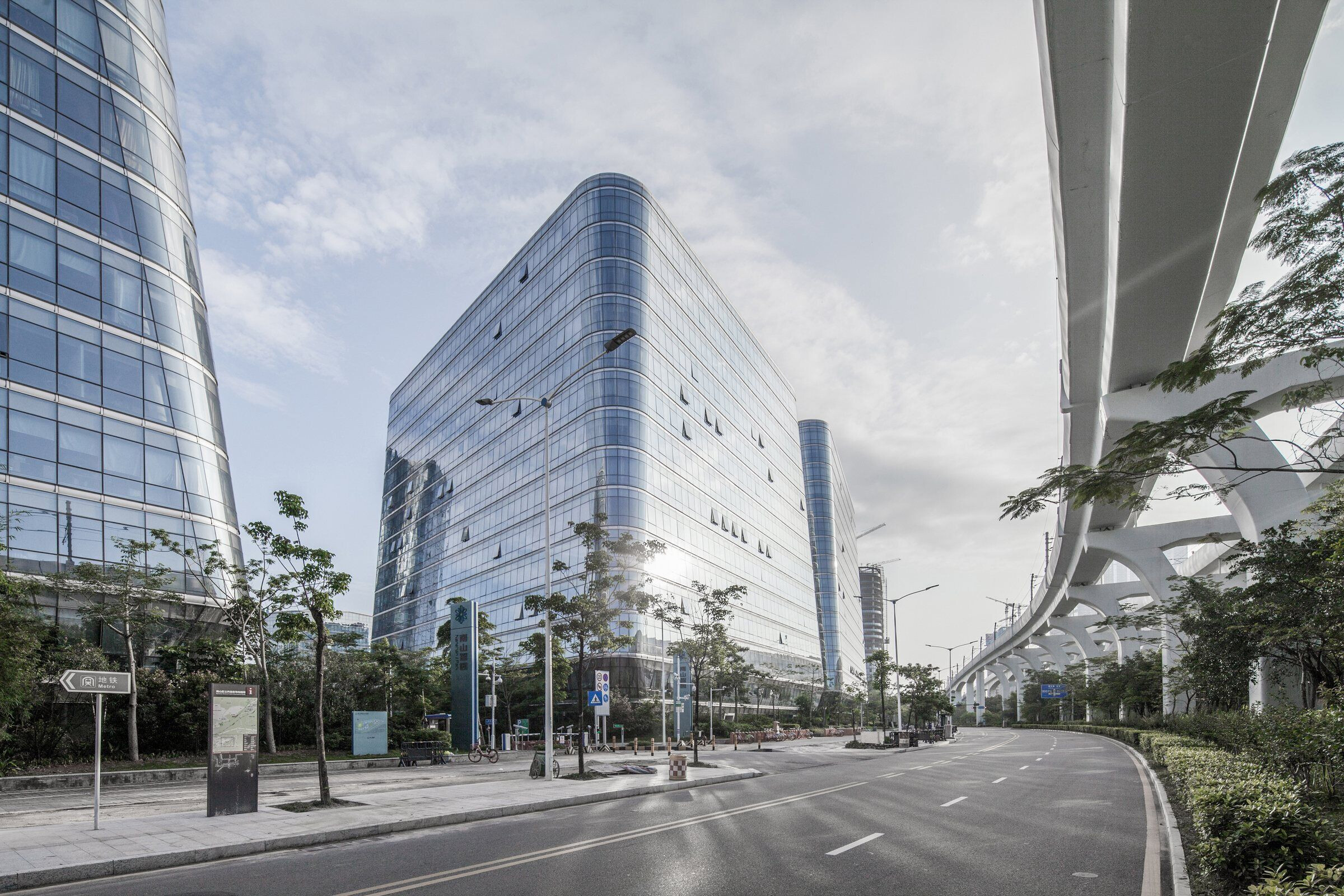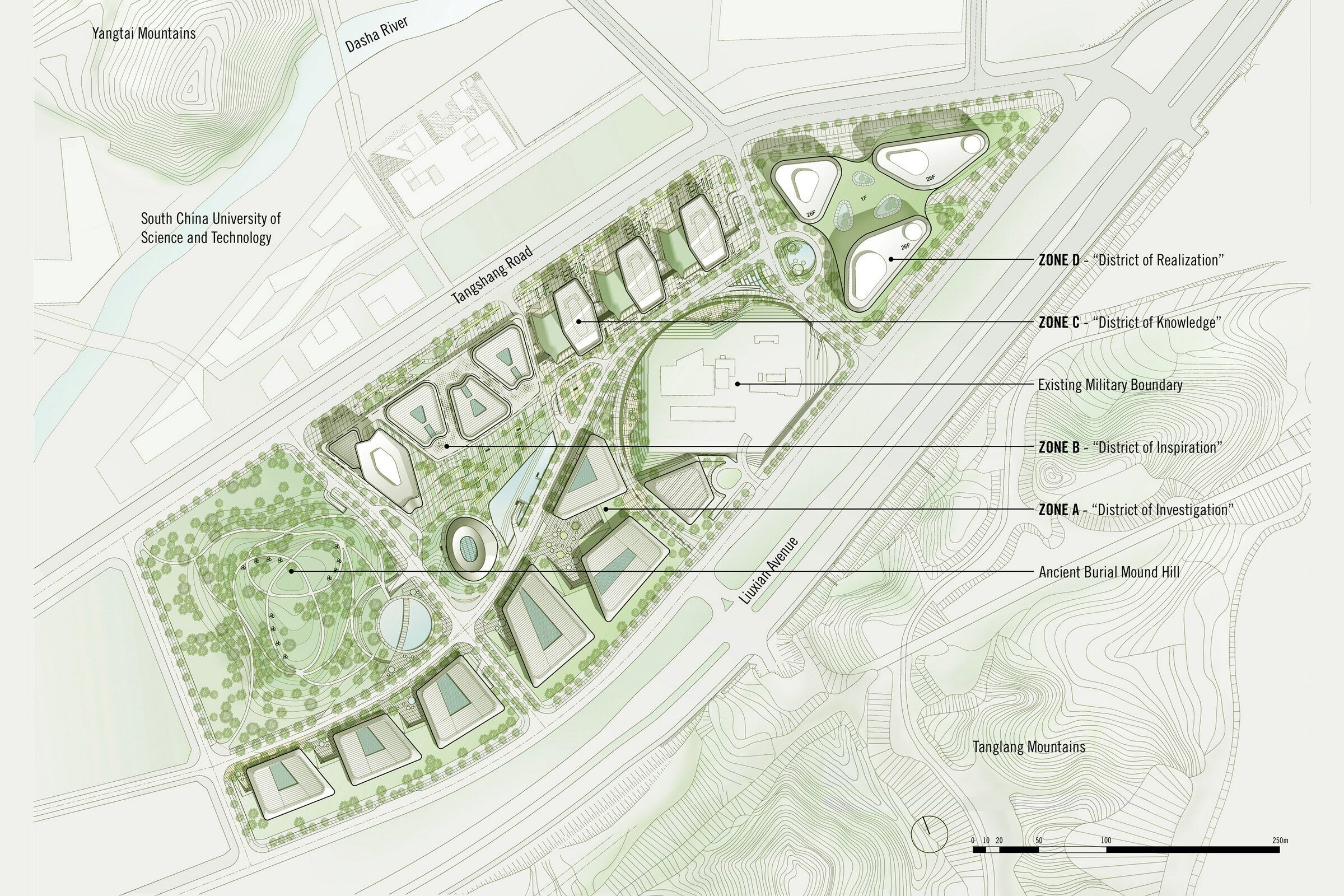Located within Shenzhen’s burgeoning NanShan Dashahe Innovation Corridor, the NanFang University Technology Park provides an enhanced environment and platform for technological innovation and discovery. Bordering Shenzhen University’s new campus, the 628,000 sm project comprises IT incubator space, R&D office, medical instruments development, and entrepreneurship services on a 15.2 hectare site. Architecture and planning strategies promote enhanced environments for technological innovation and discovery, creating incubator and educational platforms for entrepreneurs, researchers, and start ups. The architectural design approach acknowledges nature as an invaluable resource, a repository of knowledge, and a source of inspiration. Underlying the conceptual design is a realization that more often, new scientific and technological endeavors seek inspiration and answers directly from nature.

The urban design strategy preserves natural site features, notably an ancient burial mound hill and an existing military boundary, while introducing a central landscape public realm. The integrated design strategy respects the site’s existing natural topography and is organized along the framework of a city – comprised of various programmatic ‘districts’ framing a central green space. Four major ‘districts’ are comprised of the following and directly reflect their specific programmatic functions:
‘District of Inspiration’ – Entrepreneurship Incubator Center
‘District of Investigation’ – Medical Instruments & Meters
‘District of Knowledge’ – Entrepreneurship & District Service Center
‘District of Realization’ – Outsourcing Services

The districts are programmatically and architecturally distinct, yet share a dedicated landscape space or ‘city’ center - the central organizational and social element of the Technology Park. Architecturally, zones and buildings respond to site influences and feature unique massing solutions which enclose the center landscape, shape exterior space and define specific districts. Design innovation included a focused attention to site design which minimized altering natural features, and working with the site topography to establish building zone elevations minimizing excavation for underground parking.

The advanced technology buildings are thoughtfully designed to provide a variety of spatial typologies which can respond to multiple functional needs and requirements. From building typologies featuring central atriums, to high rise office space, the architectural approach takes advantage of distinctive shape and geometry to open up site view corridors, and respond to external site influences. Combinations of active and passive environmental design strategies are incorporated providing reduced operating costs, energy savings and materials conservation. The design features unique, highly flexible architectural planning solutions meeting the demanding criteria of functional use and programmatic adaptability required for today’s innovation workplace environments. The Technology Park is envisioned as a vibrant city - the ‘City of Discovery, Opportunity and Reward’.

The project was awarded first prize through an international design competition, and was a design collaboration of Saltans Architects_International Ltd. (Chicago, Hong Kong), and Jaeger Kahlen Partners Architects Ltd. (Shenzhen). Additionally, the project was awarded a Distinguished Building Award in the 2021 AIA Chicago Design Excellence Awards.
Team:
Collaborating Architects: Jaeger Kahlen Partners Architects Ltd.
Local Design Institutes: Shenzhen Architectural Design Research Institute, Shenzhen Zhonghui Architectural Design Office
Structural Engineer: Shenzhen Architectural Design Research Institute
MEP Engineer: Shenzhen Architectural Design Research Institute
General Contractor: China State Construction Engineering Corporation




Material Used :
1. Facade cladding: Shenzhen Keyuan Construction Group Co., Ltd.
2. Flooring: Terrazzo flooring, Xiamen Meijia, Xiang Stone Co. Ltd.
3. Windows: Architectural Glass, Xinyi Glass Holdings Ltd (XYG)














































